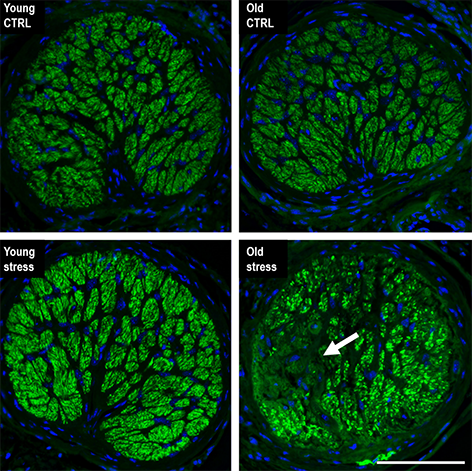Constant stress can speed up vision loss, study finds
New study shows that repeated stress can accelerate ageing of the eye, Mustafa Qadri reports

Constant stress can impair your vision over time, a new study has found.
Researchers from the University of California found that high levels of stress happening repeatedly can accelerate the ageing of cells in the eye, causing them to die off sooner and increasing sight loss.
All cells - including the retinal ganglion cells in the eye - age and die becoming a major risk factor for glaucoma. Since people are living longer, it is predicted that by 2040, there will be over 110 million glaucoma patients worldwide.
Stress - such as intraocular pressure elevation in the eye - forces retinal tissue to go through epigenetic and transcriptional changes similar to those from natural ageing.
According to researchers, even mild increases in intraocular pressure can cause the death of retinal ganglion cells and the resulting visual impairments in old animals.
In order to identify possible treatment targets, researchers are still investigating the mechanism of accumulative ageing alterations. They are also experimenting with various methods to stop the stress-related acceleration of ageing.
“Our work emphasizes the importance of early diagnosis and prevention as well as age-specific management of age-related diseases, including glaucoma,” says author Dorota Skowronska-Krawczyk, who conducted the study on mice.
“The epigenetic changes we observed suggest that changes on the chromatin level are acquired in an accumulative way, following several instances of stress. This provides us with a window of opportunity for the prevention of vision loss, if and when the disease is recognized early.”

In healthy people, the intraocular pressure in the eye oscillates between 12 and 21 mmHg every day. Nearly two-thirds of people experience it more frequently at night.
A single measurement of intraocular pressure is not enough to forecast glaucoma patients' disease progression because of the large range of intraocular pressure.
“We are continuing to work to understand the mechanism of accumulative changes in ageing in order to find potential targets for therapeutics. We are also testing different approaches to prevent the accelerated ageing process resulting from stress,” explains Skowronska-Krawczyk.
The study is published in the journal Aging Cell.



Join our commenting forum
Join thought-provoking conversations, follow other Independent readers and see their replies
Comments